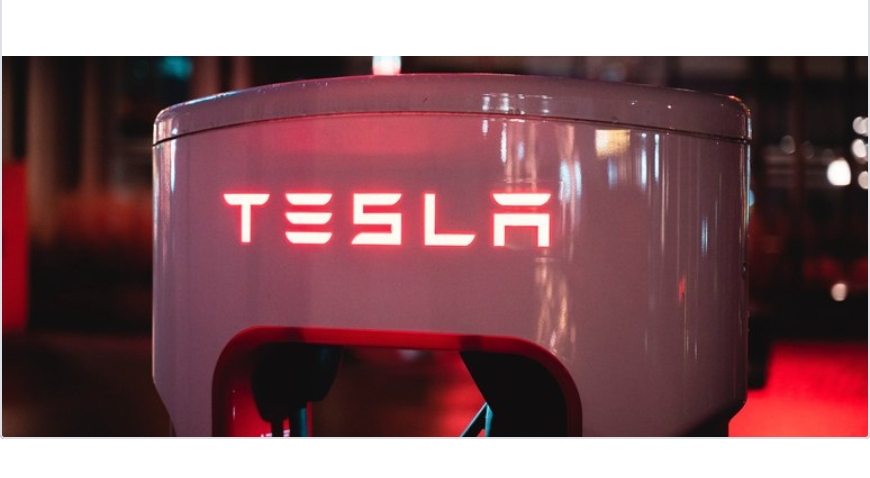
 How the company can connect with potential EV customers
How the company can connect with potential EV customers
In the ever-evolving world of electric vehicles and EV marketing, the latest development isn’t all that revolutionary. Tesla’s CEO Elon Musk recently outlined plans for Tesla to try “a little” advertising to sell its EVs for the first time in the company’s 19-year history.
A tweet from Musk in 2019 explains that he “hates advertising” and would rather “use that money to make the product great”. But competition in the form of nearly every automaker producing its own EV and the added factor of a slow economy appears to have forced Tesla to reverse its position on advertising.
While it’s currently unclear what Tesla’s plan for advertising campaigns would look like, a new analysis from YouGov points to a few key marketing opportunities for the EV automaker.
This piece looks at Tesla’s potential customers in the US to see how they differ from existing customers of the electric vehicle brand. Specifically, we’ll delve into people who meet the following criteria:
Are aware of Tesla but have never been a customer of the brand
Hold a positive or neutral view (Impression) of Tesla
Would consider buying an electric vehicle the next time they’re in the market for a car
We’ll refer to this group as Tesla’s potential customers. Now, let’s look at who these consumers are, what interests them and how they spend their time engaging with various media channels to identify the opportunities and moments Tesla can connect with this audience.
Demographic opportunities
One of the key market opportunities for Tesla lies in capturing the attention and loyalty of consumers who already hold a positive or neutral view of the brand but have yet to purchase a Tesla. By examining demographic data, we can identify who makes up Tesla’s potential customers and how they compare against Tesla’s current customers.
Data from YouGov Profiles reveals that compared to Tesla’s current customers, Tesla’s potential customers tend to be older with over half being Gen X and Boomers (53% vs. 24% of current customers). However, the largest segment of potential customers are Millennials, comprising roughly two-fifths of the group (41%).
We’ll refer to this group as Tesla’s potential customers. Now, let’s look at who these consumers are, what interests them and how they spend their time engaging with various media channels to identify the opportunities and moments Tesla can connect with this audience.
In addition to the data-driven market opportunities above, the data points to the annual Super Bowl event as a powerful cultural moment where Tesla can reach this target audience of potential customers.
Not only do Tesla’s potential customers show a strong affinity for the NFL (34% say this is their top interests vs. 24% of current customers), but they are also significantly more likely to be watching NFL-related events. Nearly half of this segment say they tuned in for Super Bowl LVII in February and 31% tuned into the playoffs.
The Super Bowl, in particular, is a cultural phenomenon, attracting millions of viewers from diverse backgrounds. Last year, car makers such as Cadillac, GMC, Kia and Jeep all took out ad spots. Data from YouGov’s Super Bowl Advertising Effectiveness report reveals that Jeep experienced lifts in Ad Awareness, Buzz and Consideration in the month following the Super Bowl.
Aside from sports, this segment spends their time engaging with several hobbies, including watching TV (64%), reading (52%), entertaining themselves online (49%), playing games (44%), cooking (40%) and exploring the great outdoors (38%).
While this is just a glimpse into the lives of Tesla’s potential customers, it’s an approach that allows the brand to tap into the collective excitement and engagement generated by events and lifestyle interests.
Media engagement
So how can marketers reach this group? Let’s look at how the segment spends its time in front of a screen across social media, broadcast/cable TV and streaming.
Data from YouGov Profiles reveals that while Facebook remains a popular platform among potential customers, there is a significant over indexing of their daily usage of Instagram, YouTube and TikTok when compared to all US adults. While these platforms offer opportunities for branded content, Tesla can also tap into the powerful culture of user-generated content (UGC) on these channels.
Looking at other forms of entertainment reveals that 67% of Tesla’s potential customers say they listen to podcasts (vs. 51% of US adults). Their favorite podcast genres align closely with their general interests, with over a quarter saying they listen to news/politics (28%) and comedy (26%). A fifth tune into genres related to society and culture (19%), music (19%), science (19%) and technology (19%).
This group of potential customers also tend to be big into TV and streaming. They over index in their weekly viewership of shows and films on several popular streaming platforms such as Netflix, Amazon Prime Video, Hulu, Disney+ and HBO Max.
In addition, potential customers are also more likely to be tuning into traditional TV channels such as ABC, CBS, Fox and NBC. Given the group’s propensity for TV watching and streaming, advertising on these platforms and channels can be an effective way for increasing brand visibility and reach.
As Tesla steers its brand into the world of advertising, it will be important to pinpoint the right strategies and channels to resonate with different groups of consumers.
Whether it be a broad approach using Super Bowl advertising to engage with a captive audience or leveraging social media channels and UGC to connect with consumers on a more personal-level, these marketing strategies should be backed with a data-driven consumer research.
Aligning Tesla’s branding and products with the mindsets of their future customers will ultimately help it thrive in the growing electric vehicle market.